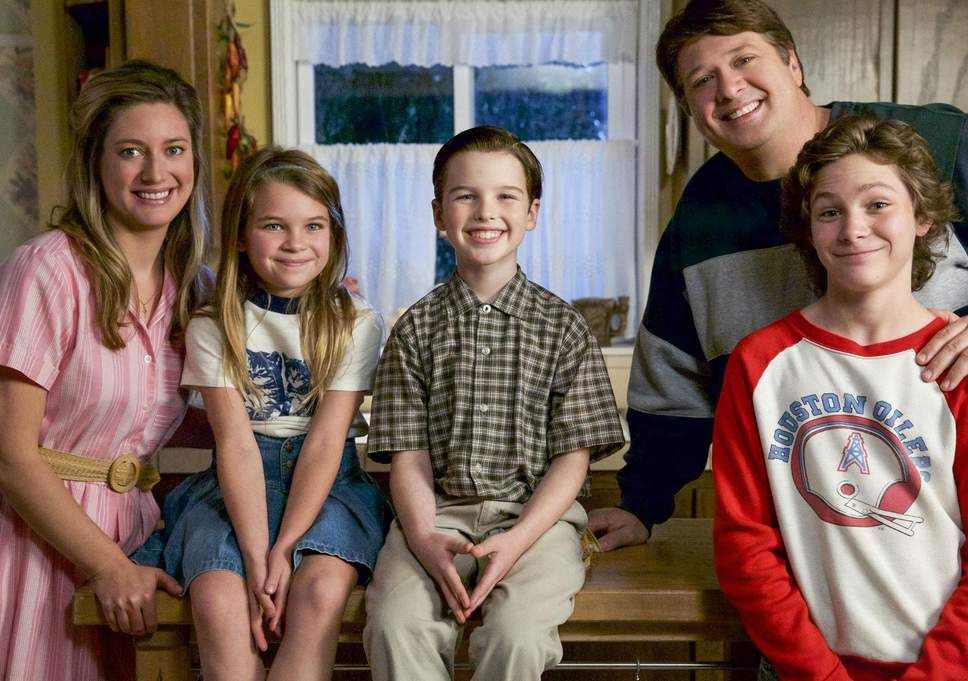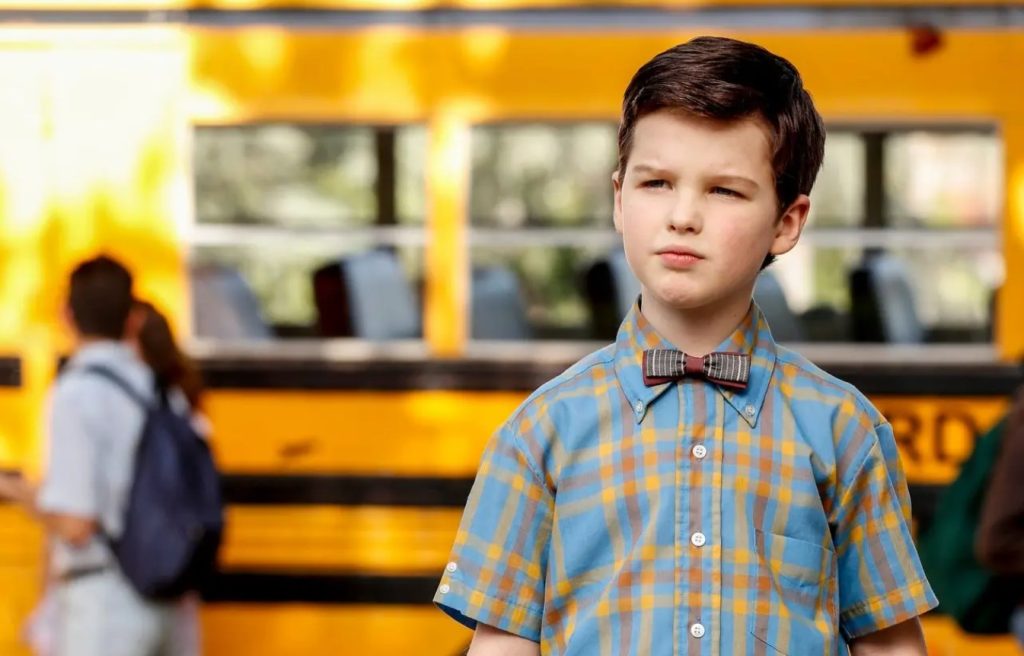“There were lots of concerns”: Chuck Lorre’s Worst Fear He Thought Will Tank Young Sheldon Never Happened to The Big Bang Theory
Introduction
When Chuck Lorre created Young Sheldon, he was taking a bold risk. A spin-off of The Big Bang Theory—one of the most beloved sitcoms of its time—was not a guaranteed success, especially with the challenge of expanding on Sheldon Cooper’s character in a new format. Lorre feared that Young Sheldon might flop, potentially tarnishing the legacy he built with The Big Bang Theory. But as the show grew in popularity, his fears never materialized. Instead, Young Sheldon became a standalone success that captivated audiences and deepened the Big Bang universe.
In this article, we’ll explore how Young Sheldon not only survived but thrived, becoming a significant part of the Big Bang Theory legacy.
The High Stakes of Launching Young Sheldon
Starting a prequel to an iconic show like The Big Bang Theory comes with risks. Lorre knew that audiences already held certain expectations for Sheldon, making it tricky to delve into his past without disrupting fans’ perception of the character.
Why Chuck Lorre Feared Failure
From the beginning, Lorre had legitimate concerns. He feared that audiences might not respond to a younger, more vulnerable version of Sheldon. The show’s single-camera format, which eliminated the classic sitcom laugh track, was also a significant departure from The Big Bang Theory. Could Young Sheldon hold its own without the signature laughs and ensemble humor?
The Challenge of Exploring Sheldon’s Background
Sheldon Cooper, portrayed by Jim Parsons, was a fan-favorite on The Big Bang Theory, known for his eccentric personality and unique quirks. However, revealing his backstory meant exposing a different side of Sheldon—one that was still developing his distinctive traits. The question was: would audiences connect with a young Sheldon who was still learning about himself?
The Shift from Multi-Camera to Single-Camera Format
Unlike The Big Bang Theory, which used a multi-camera setup and live audience laughter, Young Sheldon went in a more cinematic direction. Lorre and co-creator Steven Molaro stepped into new territory with a single-camera format. This choice created a more intimate viewing experience but came with risks, as audiences accustomed to laugh-track comedies might find it jarring.
Overcoming Early Skepticism
Initially, both fans and critics were uncertain about Young Sheldon. Could the show capture the same magic without Sheldon’s iconic friends and the laugh track? But as the episodes unfolded, audiences found themselves captivated by the heartwarming and often humorous moments of Sheldon’s upbringing.
The Success of the First Season and the Audience Response
Young Sheldon proved to be an instant hit, drawing over 16 million viewers in its first season. This overwhelming success demonstrated that the show had something unique to offer—a charming glimpse into Sheldon’s life, his family, and his relationships.
How Young Sheldon Found Its Own Audience
As traditional TV faced growing competition from streaming services, Young Sheldon managed to attract a loyal fan base. The show appealed to both fans of The Big Bang Theory and new viewers who appreciated the story of Sheldon’s journey.
The Role of Streaming in Young Sheldon’s Continued Success

When Young Sheldon arrived on Netflix, it saw a resurgence in popularity, particularly among younger audiences. Surprisingly, the show’s median viewer age on Netflix was about 30, a stark contrast to CBS’s older demographic. This crossover success expanded the Big Bang Theory legacy to a broader, more diverse audience.
Chuck Lorre’s Surprising Success with Younger Audiences
Lorre was initially uncertain if younger viewers would connect with Young Sheldon, but Netflix proved otherwise. The platform’s global reach allowed new fans to discover the show, expanding its impact and extending its reach far beyond network television.
The Enduring Popularity of The Big Bang Theory’s Legacy Characters
Sheldon isn’t the only character audiences loved seeing again. Through Young Sheldon, viewers have enjoyed deeper insights into Sheldon’s parents, George and Mary Cooper, and his twin sister, Missy. This fresh perspective on his family brought new emotional layers to Sheldon’s story.
The Evolution of Mary and George Cooper’s Relationship
One of the show’s most intriguing aspects is the relationship between Sheldon’s parents. Mary’s devout faith and George’s laid-back approach often clash, but their love for their children is evident. Young Sheldon provided the opportunity to explore these characters beyond their roles in The Big Bang Theory, making them relatable and endearing in new ways.
Why Audiences Fell in Love with Missy Cooper
Missy Cooper, Sheldon’s twin sister, quickly became a fan favorite. Her witty, down-to-earth personality served as a perfect counterbalance to Sheldon’s eccentricities. Through Missy, audiences gained a fresh perspective on the Cooper family dynamic and the challenges of growing up alongside a unique sibling like Sheldon.
The Show’s Focus on Family Dynamics

At its core, Young Sheldon is a family show. While The Big Bang Theory revolved around friendship and romance, Young Sheldon shifted the focus to family dynamics. This change in theme helped the show resonate with audiences of all ages, as many viewers related to the challenges and joys of family life.
Chuck Lorre’s Relief and Satisfaction with Young Sheldon’s Success
As Young Sheldon continued to gain popularity, Lorre’s fears of failure slowly faded. The show not only upheld the Big Bang legacy but expanded it, winning over viewers and critics alike. For Lorre, seeing the spin-off succeed has been both a relief and a joy.
How Young Sheldon Shaped the TV Landscape
By the time Young Sheldon hit its stride, it became one of the last major network hits, with streaming rapidly taking over the entertainment industry. Its popularity on both network TV and streaming platforms has marked it as a unique success, bridging the gap between traditional television and the on-demand world.
The Future of The Big Bang Theory Legacy
With Young Sheldon proving so successful, fans are curious about the future of the Big Bang Theory universe. Could there be other spin-offs on the horizon? While nothing is confirmed, Young Sheldon’s success has shown that the Big Bang legacy still has stories left to tell.
Conclusion
Chuck Lorre’s greatest fear—that Young Sheldon might flop and damage The Big Bang Theory legacy—never came to pass. Instead, the show became a triumph in its own right, appealing to both die-hard Big Bang fans and a new generation of viewers. Through heartfelt storytelling and character development, Young Sheldon expanded the world of The Big Bang Theory, proving that the Coopers’ story could resonate across ages and viewing platforms. As Lorre watched Young Sheldon flourish, he saw his vision realized: a show that stands strong while enhancing the legacy of one of television’s most iconic sitcoms.
FAQs
- Did Chuck Lorre always plan to create Young Sheldon? No, Lorre initially had reservations about a prequel series, especially since prequels can be risky for beloved characters.
- How did Young Sheldon find success on Netflix? Netflix introduced Young Sheldon to a younger audience, allowing it to reach new fans beyond the CBS demographic.
- What makes Young Sheldon different from The Big Bang Theory? Young Sheldon focuses on family dynamics and uses a single-camera format, which contrasts with the multi-camera setup and friendship themes of The Big Bang Theory.
- Will there be more spin-offs from The Big Bang Theory? While there are no confirmed plans, the success of Young Sheldon suggests potential for more spin-offs in the future.
- Why did Chuck Lorre worry about Young Sheldon’s success? Lorre feared that a spin-off centered on Sheldon’s childhood might not connect with audiences, potentially affecting the Big Bang Theory’s legacy.



